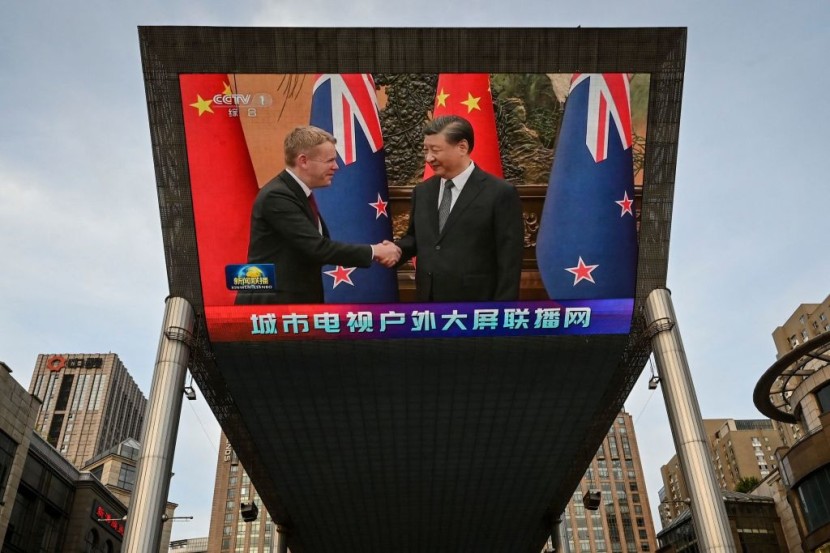
New Zealand Prime Minister Chris Hipkins went to Beijing Tuesday, June 27, to discuss his country's interest in boosting economic ties with China.
His five-day visit to China was the first since becoming prime minister in January. He arrived in China with a business delegation representing areas including tourism and education.
Hipkins said the focus of his meeting with Chinese President Xi Jinping was to reaffirm New Zealand's "close economic relationship" by supporting businesses "(to) renew their connections with Chinese counterparts" and "helping grow new ones to support New Zealand's economic recovery."
Prior to his visit, he described New Zealand's partnership with China as a "critical part" of its economic recovery.
The country officially entered a recession this month after its economy failed for two consecutive quarters. Officials also said China would be key to the country's post-pandemic recovery in terms of exports, tourism, and education.
Despite Wellington issuing critical statements about Beijing's human rights and foreign policy practices through its independent foreign policy, it has generally experienced less friction and friendlier interactions with China than with other Asia-Pacific nations like Australia, as well as other "Five Eyes" security partners like the US.
On the other hand, Xi praised "the great importance" of the strengthening of ties between Wellington and Beijing, saying Hipkins's visit was "very meaningful," Chinese state news agency Xinhua said.
"We will continue to see each other as partners instead of rivals," Xi said as per Chinese state broadcaster CCTV.
Earlier that day, Hipkins attended the meeting of the World Economic Forum in the Chinese port city of Tianjin alongside other foreign officials and joined a signing ceremony for four NZ exporters and their Chinese counterparts. He would also meet with Chinese Premier Li Qiang on Wednesday (June 28).
Read Also: Chris Hipkins Takes Over as New Zealand's PM
Hipkins Slammed by Opposition for Using Backup Plane
Meanwhile, back at home, New Zealand's opposition parties criticized Hipkins for bringing a backup plane on his visit to China this week.
The backlash happened after Hipkins's office told CNN the second aircraft was due to frequent reliability issues with the current air force plane. A spokesperson said the "backup aircraft" was "pre-positioned" in Manila in case the primary aircraft carrying Hipkins and a trade delegation broke down.
"Given the importance of the trade mission, the long distance involved, and the large size of the traveling business delegation and media contingent, it was considered that a backup aircraft was justified to ensure the success of the mission to our largest trade partner," the representative added.
On the other hand, New Zealand opposition leader Chris Luxon said Hipkins's use of two planes was not a good look environmentally. "We have a climate change challenge, I thought, in this country - so sending an empty 30-year-old 757 following a full one doesn't seem a good move," he told Radio New Zealand.
ACT Party leader David Seymour claimed in a post on his official Facebook page Monday (June 26) that "the emissions created by taking the extra plane is the equivalent of driving a Ford Ranger the distance of a trip to the moon three times."
Related Article: Weibo Bans Finance Writers After Commenting About China's Stock Market; Foreign Investors Now Concerned
© 2025 HNGN, All rights reserved. Do not reproduce without permission.








